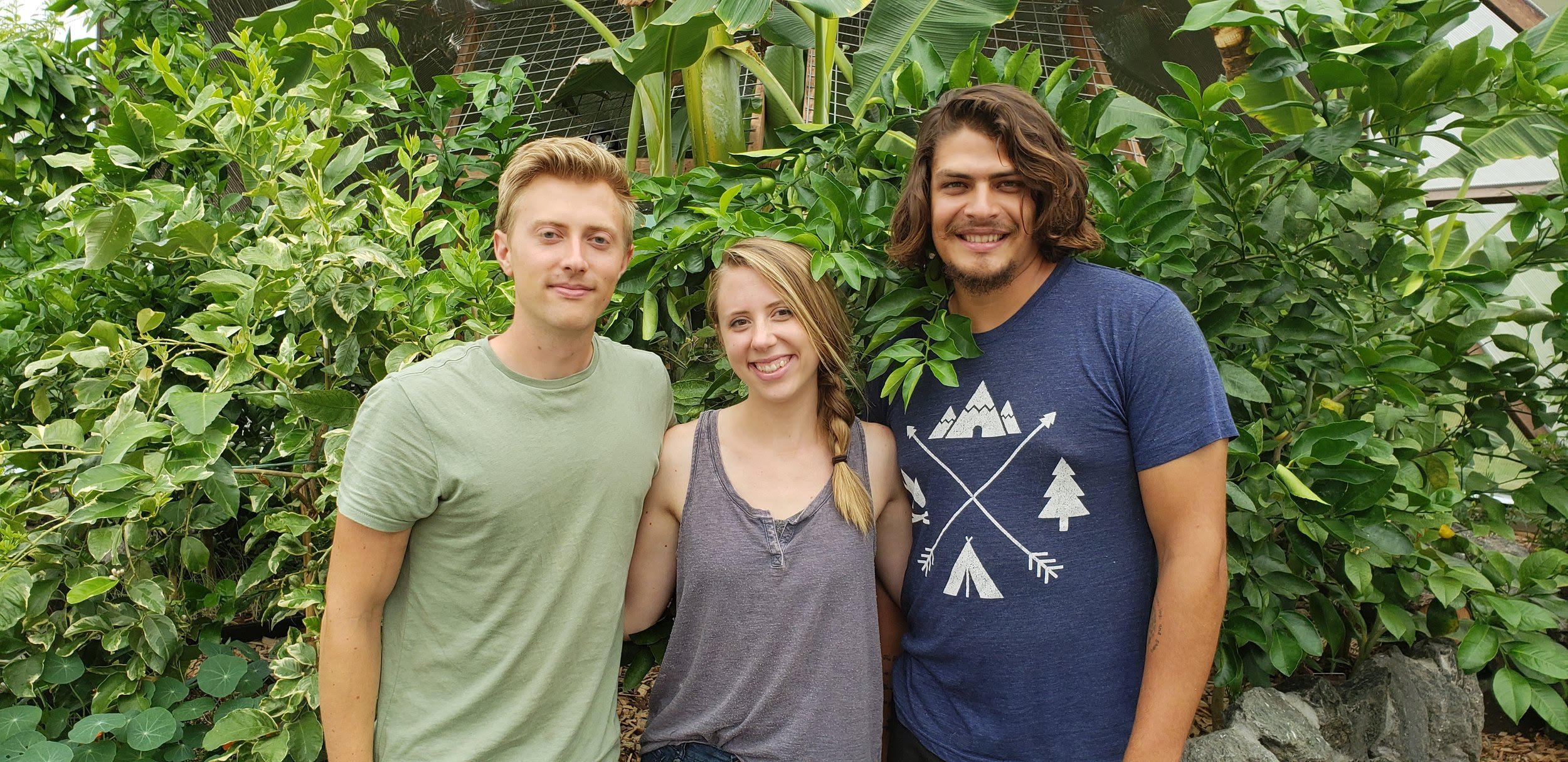Local Producer Spotlight: Kodama Farm & Food Forest
Kodama Farm & Food Forest
Back in 2016, Grace, Ben, and Matt of Kodama Farm & Food Forest lived out of a tent so they could begin building their dream—an organic, regenerative farm. They’d spent years talking about and researching the project, but imagined it was something they’d do in the future, after they’d pursued more typical careers. After researching regenerative agriculture and visiting small-scale sustainable farms, they decided not to wait—they could do it now.
They leased land in Chimacum and started building their farm, working at the Chimacum Farm Stand and for a local contractor to bring in an income in the meantime. They built a goat house and a chicken coop, plus a geodesic dome green house so they could grow tropical and sub-tropical plants. Today, they grow herbs and vegetables in addition to eggs, goat-milk soap, and tropical fruits. They sell to the Co-op, through their farm stand, and the Chimacum Corner Store, as well as to local restaurants, such as Nadine’s Kitchen.
Grace, Ben, and Matt care deeply about the health of the land, and they know soil is the key to a healthy farm. Their regenerative, no-till farming practices improve the soil, supporting the bacteria, fungi, worms, etc., that help plants access the nutrients they need. They use raised beds so they don’t have to till, and the high water table of Beaver Valley provides enough moisture most of the year. Beaver Valley is often thought of as more appropriate for livestock than vegetables because of it’s tendency to flood, but Kodama Farm is actually making use of that high water table!
Goat-milk soap available at the Co-op in the Wellness Department.
They do not use pesticides, herbicides, fungicides, or synthetic fertilizers, both for the sake of the land and for those of us eating their produce. These common agricultural amendments reduce the biodiversity needed for healthy soil as well as leach into the ground water. Kodama also works with the Land Trust and the North Olympic Salmon Coalition to restore their section of Chimacum Creek, eventually to open it up to the public. Their ecological practices extend to the geodesic-domed green house, which utilizes rock walls and an indoor pond to absorb heat during the day and gradually release it at night. To moderate the soil temperature, they have tubes in the soil and a solar-powered fan to pull warm daytime air into the tubes.
The three chose their name to celebrate forests, the perfect example of both diversity and interconnectedness. Kodama are tree spirits in Japanese folklore. You may also wonder about the “Food Forest” part of their name. A “food forest” is pretty much what its name suggests: it has all the integrated layers of a forest, such as a canopy, shrubby undergrowth, and ground cover, supported by a thriving underground layer, but the plants (and fungi) involved are mostly edible. It’s an ancient farming technique used all over the world, mimicking the interconnectedness of nature, but including diverse food plants that might not usually grow next to each other. Today urban communities have begun turning to food forests, which can be created on empty lots, to address food inequality and access.
Kodama Farm is converting a five-acre orchard into a food forest, laying in plants such as persimmon, mulberry, hazelnut, peach, kiwi, and autumn olive. As they put it on their website: “This food forest will eventually provide us with an abundance of delicious food while supporting the health of the soil and symbiotic relationships that naturally exist in a healthy ecosystem.”
Kodama is a small farm and hasn’t yet offered the Co-op any of their produce or fruit, but you get their goat-milk soap at the Co-op. The beautiful freeform bars are in the Wellness Department under the window. You can also buy farm bucks on their website or arrange to take a tour of the farm.


